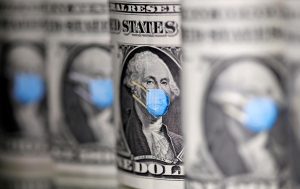
The World Bank’s Board of Executive Directors on Saturday night decided to provide Ukraine with a $300 million loan for the Second additional financing aimed at overcoming the consequences of the coronavirus disease (COVID-19) pandemic for the project “Modernization of social support system for the population of Ukraine.”
“Social protection measures, for the implementation of which a new loan is provided, will help the government of Ukraine finance social assistance programs in order to save about one million Ukrainians from falling below the poverty line,” the bank’s release quoted the words of its regional director for Eastern Europe (Belarus, Moldova and Ukraine) Arup Banerji.
The World Bank’s support for Ukraine to protect low-income citizens who have been severely affected by the COVID-19 outbreak is a powerful anti-poverty response, he said.
The World Bank reminds that the decision on the first additional financing for the above project in the amount of $150 million was made on April 30 this year.
According to the bank’s forecasts, due to the consequences of the pandemic, the poverty level in Ukraine could grow by 4 percentage points, reaching about 23% by the end of 2020.
Its experts report that the crisis due to the COVID-19 pandemic requires the introduction of prompt emergency response measures in the country and the provision of emergency cash assistance to citizens. It also highlighted the need to strengthen social protection infrastructure and develop systems capable of delivering payments to people in times of crisis.
“The allocated funds will help Ukraine finance urgent measures in the field of social protection to overcome the consequences of the COVID-19 pandemic, which provide for emergency cash payments to those citizens and households who have lost their jobs or sources of income as a result of the pandemic,” the message says.
The second additional funding will support the introduction of an online social assistance system and the expansion of social benefits and pensions through direct money transfers to bank accounts. Payments to families with low income will be carried out under the current program of state social assistance to low-income families, the World Bank said.
The World Bank estimates that 60% of Ukrainian citizens who are on the brink of poverty due to the economic consequences of the COVID-19 outbreak are not yet recipients of social assistance under one of the existing social protection programs.
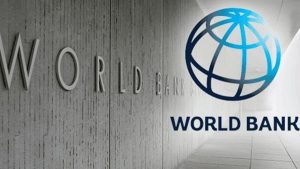
Ukraine’s economy will shrink by 3.5% in 2020 due to the coronavirus-related crisis, while the global economy will lose 5.2% overall, the World Bank announced this in the updated Global Economic Prospects on Tuesday. “The depth of the contraction will depend on the duration of the health crisis, progress on major pending reforms, and the ability to mobilize adequate financing to meet sizable repayment needs,” the World Bank said.
According to the bank, next year the growth of the Ukrainian economy will resume at a rate of 3%, which is lower than the expected recovery of the global economy at 4.2%.
The World Bank said that compared with the previous forecast in January of this year, it worsened expectations of the dynamics of Ukraine’s GDP this year by 7.2 percentage points (pp), and in the next – by 1.2 pp.
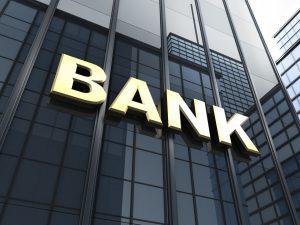
The World Bank’s Board of Executive Directors has approved in the early hours of Tuesday $135 million in Additional Financing for the Serving People, Improving Health Project, to scale-up Ukraine’s health sector response to the coronavirus (COVID-19) pandemic, the bank said in a statement.
“This additional financing will help Ukraine upgrade up to 40 hospital emergency departments and stroke units, enabling hospitals to perform complicated medical procedures using hi-tech equipment and appropriate treatment protocols,” World Bank Acting Country Director for Belarus, Moldova, and Ukraine Alex Kremer said, adding that patients will have an opportunity to choose any hospital in Ukraine, and their costs for surgical operations will be covered by the state budget.
The World Bank recalled that the ongoing Serving People, Improving Health Project, with the initial $215 million investment, provides assistance for renovation of urban hospitals and rural health posts, purchasing of modern equipment, and improvement in the quality of health services. The funds were focused on supporting health reforms, improving services delivery (including primary and secondary prevention, early detection, and treatment of cardiovascular diseases and cancer), as well as enhancing the efficiency of the health care system.
The additional $135 million will help Ukraine with important hospital upgrades and reforms, and also help train thousands of Ukrainian doctors in the provision of modern medical services, the bank said.
The project will also help fund people’s medical needs, from the state budget, and provide $35 million for COVID-19 emergency response activities. These funds will be used to buy essential materials and equipment for the country’s COVID-19 response, provide much-needed training for medical personnel, and support communication of essential public information. It will also cover reimbursement of financing to Ukrainian providers of health care for COVID-19 patients.
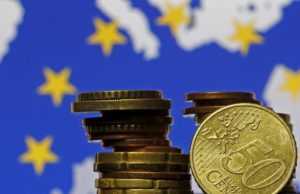
President of Ukraine Volodymyr Zelensky has emphasized that the International Monetary Fund (IMF), the World Bank, the European Bank for Reconstruction and Development (EBRD) and other financial organizations were ready to help Ukraine amid the coronavirus pandemic. “Yesterday I had a conversation with IMF Managing Director Kristalina Georgieva. Our international financial partners, including the IMF, the World Bank, the EBRD assured us of their readiness to support and help Ukraine,” he said in an appeal to Ukrainians on Monday, March 23.
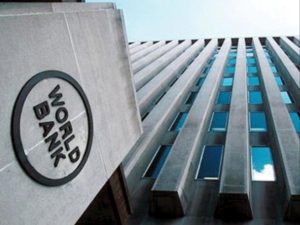
The World Bank has improved the forecast for Ukraine’s GDP growth in 2019 from 3.4% to 3.6%, World Bank Senior Economist Anastasia Golovach has said.
“For 2019, we do not expect any surprises and we think that Ukraine’s GDP will grow by 3.6%. A good indicator, but external risks, in some way, are increasing for Ukraine, so the structural transformation of the economy is important,” she said at a press conference in Kyiv on Tuesday.
She noted that maintaining the current rate of economic growth will require an increase in capital investment, which amounted to 10% last year. This will require a greater influx of foreign direct investment.
At the same time, the bank kept forecasts of economic growth in 2020 at 3.7% of GDP, in 2021 at 4.2%, she said.
According to the banker, the deficit of the balance of payments in Ukraine in 2019 is expected to reach 3.1% of GDP, however, due to the potential loss of gas transit revenues and the unfavorable situation in the world markets, this figure will increase in 2020 and 2021 to 3.6% and 3.8% of GDP.
“But subject to rapid reforms, we expect in the next month that Ukraine will be able to maintain the economic growth rate at 3.7% in 2020 and accelerate it to 4.2% in 2021,” Golovach explained.
“An important factor in reducing pressure on the budget deficit is control over current budget expenditures and a balanced reduction in the minimum wage this year – only at the level of 12%, which is very contrasted with the previous years,” Golovach said.
Moreover, according to her, inflation will continue the downward trend: from 9.8% at the end of last year to 6.4% by the end of this year, as well as 5.5% and 5% in 2020 and 2021 respectively.
According to the bank’s expectations, in 2019 the deficit of the national budget of Ukraine will show a decrease to 2.1% in 2020 and 1.9% in 2021.
The World Bank believes that the level of public debt of Ukraine will also continue to decline this year to 51.7% of GDP. At the same time, the bank maintained the forecast for its further growth in 2020 and in 2021 to 54.6% and 55.3% of GDP respectively.
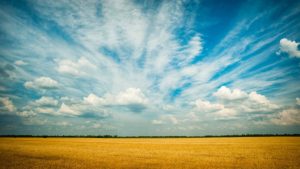
The World Bank has expressed its strong support to land reform in Ukraine and praised its necessity to all market participants.
“The World Bank strongly endorses the plans of Ukrainian leadership to open the agricultural land market. Land reform is needed for Ukrainian farmers to buy and sell agricultural land, access credit, invest and diversify, as well as land owners to get proper return for their most valuable asset,” the World Bank said in its statement posted on Facebook on November 9.
The statement reads that all farmers, including small, medium and large, and landowners will benefit from the opening of the land market.
“It raises economic growth as well as living standards of all Ukrainian people by unleashing the country’s agricultural potential. The planned reform also includes measures to limit land concentration, stop raider attacks and provide financial assistance for small farmers. Two decades of a closed market and non-transparency that fosters corruption are enough: the time for land reform is now,” the World Bank said.